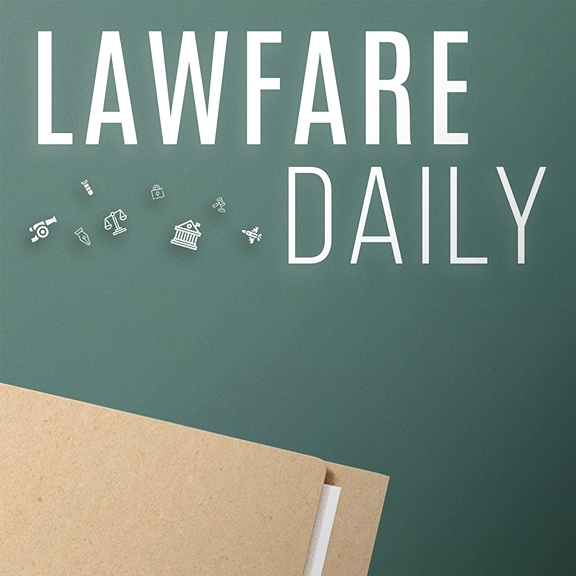
The Lawfare Podcast
The Lawfare Podcast features discussions with experts, policymakers, and opinion leaders at the nexus of national security, law, and policy. On issues from foreign policy, homeland security, intelligence, and cybersecurity to governance and law, we have doubled down on seriousness at a time when others are running away from it. Visit us at www.lawfareblog.com.
Support this show http://supporter.acast.com/lawfare.
Hosted on Acast. See acast.com/privacy for more information.
Our Editor's Take
The Lawfare Podcast, a production of The Lawfare Institute, examines national security and law. Host Benjamin Wittes serves as Lawfare's editor-in-chief.Wittes is a Senior Fellow in Governance Studies at the Brookings Institution and a national security and legal expert. The podcast's hosts and guests include scholars of international law. They are policy makers, opinion leaders, professors, and journalists. Their depth of knowledge differentiates this podcast from more casual ones. They discuss various legal topics, including cybersecurity, foreign relations, and intelligence.
The Lawfare Podcast is a specialized law and policy show. The podcast often sticks to a discussion-based format. Panelists answer listener's questions on some episodes. The "Ask Us Anything" episode is an annual tradition. Some themes, like "Trump's Trials and Tribulations," appear throughout multi-part series.
Podcast episodes deconstruct many topics. One episode features lawyer Michael Gottlieb. He questions former New York City Mayor Rudy Giuliani's judgment. In another, Lawfare cofounder Jack Goldsmith talks with Harvard's Graham Allison. Allison reviews his relationship with his mentor Henry Kissinger. Panelists analyze the actions of Israel and Hamas under humanitarian law. The conflict in Yemen, cyber security, and UK secret intelligence all come up. Guests discuss Washington's response to the conflict between Ukraine and Russia. They also analyze the complicated politics of Ukraine aid.
The podcast also talks about related books that deal with politics and the law. In one memorable episode, Dan Klaidman and Michael Isikoff guested. They wrote the book Find Me the Votes: A Hard-Charging Georgia Prosecutor, a Rogue President, and the Plot to Steal an American Election. The title of the book comes from Donald Trump's efforts to try to swing the Georgia presidential election in his favor. He demanded this of Georgia Republican politicians.
The podcast features some lighter moments and informal conversations. However, these are relatively rare. The Lawfare Podcast is serious. It boasts an academic approach to the subject matter. Its tone reflects the nature of the show. Listeners seeking an immersive experience in national security and policy find it here. New episodes come out several times a week. Most episodes last about an hour.
Episodes




